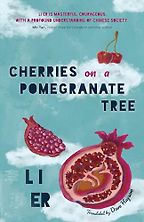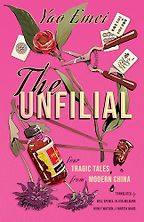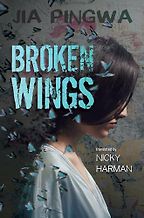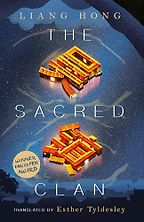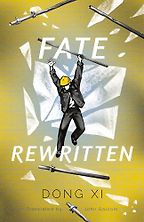It’s safe to say that when we think of ‘China’, we no longer imagine the early cinematic depictions of sinister Mandarins and shadowy Fu Manchu villains prominent a century ago. Those images are now replaced with ideas of sprawling urban centres and mass production exported under the label ‘Made in China.’
Yet, there is still so much of contemporary China that remains unseen by international onlookers. A language that can seem so mortifyingly complex to the average English speaker, it’s unsurprising that Chinese-to-English translation is a world that has historically hinged on academics. Connotations of state control and limited artistic expression may also come to mind, making it easy to believe there is no scope to read first-hand accounts of the growing pains Chinese citizens have faced since the economic reforms of the 1980s. Seemingly inaccessible, Chinese translated fiction has been a rarity in the UK – until recently.
As an ever-growing market, Chinese-translated literature perseveres in the fight to leave its mark on the global literary landscape. It may seem daunting, trying to connect with distant landscapes and unfamiliar names, or even boring, trying to understand complicated allegories on veiled subjects hidden behind various layers of politics. As an answer to these obstacles, we’ve compiled a list of five contemporary Chinese translated books with plots, characters, and ideologies that might surprise you, each with their own distinct voice and concerns, in the hopes of bringing readers just that little bit closer to understanding the complexity and humanity of modern China.
Cherries on a Pomegranate Tree by Li Er, translated by Dave Haysom
Cherries on a Pomegranate Tree tells the story of Kong Fanhua’s leadership through anxious times of one-child policy crackdowns in her village. Li Er’s admiration for the unheard voices of those impacted by these regulations is nimbly elevated through an unforgettable cast of characters. The story begins as Fanhua attempts to track down a runaway pregnant mother and devolves into many tales of Fanhua picking up the pieces of others. As she tries to balance the search for a notorious pickpocket while denouncing rumours of a vengeful ghost as well as looking to “unhaunt” a mysterious abandoned bomb, she must also keep her camel-loving husband and the needs of her wider family in check.
The one-child policy existed in China from 1979 to 2015. In Anglophone media, we have seen this through a lens of international adoption, population graphs, or infanticide. Yet, through the fog of political discourse, Li Er leads the reader through more nuanced, meandering paths. In a rural village with a cast of unforgettable characters, the protagonist herself stands at an intersection of gender and power. A textured map of deliberate contradiction and moral ambiguity, Fanhua walks the path of both an enforcer and an outsider; a woman tasked with enforcing the family planning policy on other women, all whilst fighting for her position among the male-dominated leadership. Cherries has an undeniably complex view on women navigating contemporary China. Through the course of the story, she does find the aforementioned illegal pregnancy; however, to find out the route she takes, you’ll have to read for yourself.
The Unfilial: Four Tragic Tales from Modern China by Yao Emei, translated by Will Spence, Olivia Milburn, Honey Watson and Martin Ward
A brutally honest view of family life in modern China, in four tales. With sharp-edged observation, Yao Emei shows that when a household crumbles, it’s always the women who are left picking up the pieces, but no one comes out looking good when caught in a vicious cycle of abuse. The mirage of a picture-perfect home compels some to gamble away the family house, while others have to live with the debts of a shameful past. Other stories include an account of trafficking at a maternity ward, and a mistress’s revenge on a serial adulterer. Come inside – or stare through the window – at your peril: after all, what’s a closet without its skeletons?
The Unfilial presents the all too familiar struggle of women as caretakers, caught up in systemic and systematic disadvantages. With unflinching poetic realism, Yao’s stories explore darker aspects of society, exploring territories both moral and legal that push the boundaries of acceptable expression. Cutting back the seemingly unblemished skin of traditional family values, she exposes the wounds of women pushed into self-sacrificial roles to maintain harmony. Through raw, disillusioned perspectives on women’s position in society, the male irresponsibility that may have previously been tolerated is almost surgically dissected, and hints at the minor victories women extract where institutions have failed them.
Broken Wings by Jia Pingwa, translated by Nicky Harman
Broken Wings tells the story of Butterfly, who is kidnapped and taken to a remote mountain village devoid of young women. There, she is imprisoned and, later, raped in the cave home of the wifeless farmer who has bought her. Butterfly’s fading hopes of escape are described in her own voice, revealing the struggles of a spirited young woman.
In 2022, a news story from China was so loud, it couldn’t be confined to local or even national outcry. A woman in her 40s was found chained by her neck in an outside hut, and was eventually identified as Xiao Huamei, who was trafficked in 1997. Xiao’s story brought international attention to the still-persistent world of bride-selling and human trafficking bound to modern China. Jia’s novel, published in 2016, previously gave voice to this issue. Whilst international onlookers were shocked at the local authorities’ complicity in sealing this woman’s fate and the central government’s attempts to recapture the narrative, even this only gave a restricted view. Meanwhile, the topic has been quietly placed at the centre of the Chinese public’s imagination by one of the country’s foremost authors. It’s easy to imagine the subject being locked away, forced into the background to prevent criticism. Yet Broken Wings manages to use fictional accounts of female resolve to trace the outlines of this cage, using literature as a witness to preserve what official accounts may erase.
The Sacred Clan by Liang Hong, translated by Esther Tyldesley
The Sacred Clan tells the story of Wu Township, following the journey of the town as it succumbs to the competition of the urbanised metropolises. With the ancient trees falling into the shade of the modern aqueduct, even water becomes just another resource to be funnelled to the new urban centres of wealth. Telling the narrative through the town, several short stories give a glimpse into the lives of those who stayed over the years, and how the town has changed in the wake of China’s rapid economic development. Some still cling to dreams and traditions, others resort to corruption to get by. Yet, from the marketplace where gossip is traded to the long-abandoned execution grounds, life carries on.
China’s rapid economic development may have materialised as a gradual apparition to the Western world. Products manufactured in China have left receding waves of nostalgia for life in the late 20th century. Domestically, however, this process was far from painless. Liang Hong discusses the decay of a once-rich and vibrant township, contradicting the official narratives of prosperity for all. This fictional village, drawn from her home, is shown in slow attrition. Families are thinning out, traditions are becoming hollow, and once close-knit communities are dissolving in the wake of urbanisation. The Sacred Clan offers a different perspective, one in which memories don’t become sweet and nostalgic, but are left as a lingering heaviness that represents the sediment left behind when the water has evaporated.
Fate Rewritten by Dong Xi, translated by John Balcom
If you can’t afford luck, all you can get is compensation.
Wang Changchi shouldn’t be here. For generations, his family has dreamed of escaping their poverty-stricken village, placing their hopes on him to finally make it out – but when a twist of fate takes his chance away, his only shot at a better life in the city is as a migrant worker risking his life in the high-rise construction boom. Confronting China’s system of household registration that privileges the lucky few, Fate Rewritten is a spirited depiction of the struggle to change the course of destiny. All it would take is a few words on the right documents – but the cost of rewriting fate could require giving up everything…
Moving for work is always a roll of the dice, but in China, where the hukou system seriously limits opportunity, it’s more than just a coin-toss decision. An almost satirical account of the limitations of a system starting in 1958, Fate Rewritten is an ode to the internal migrants responsible for keeping the urban industry ticking over. Bureaucracy is an absolute, undeniable, inefficient dealer of destiny. Caught in a struggle to escape poverty, the protagonist is driven to underhanded strategies, and even then seems to find the cards are stacked against him. There is no ideological resolution, no moral reckoning, no forgiveness of the state, only a bleak display of a game where the house edge is displayed front and centre in all its disparity.
Five different books on Chinese society with a variety of perspectives, we hope this list opens up your imagination to the true range of contemporary Chinese literature.
Interview by Dawn Bailey
August 13, 2025. Updated: August 25, 2025
Five Books aims to keep its book recommendations and interviews up to date. If you are the interviewee and would like to update your choice of books (or even just what you say about them) please email us at [email protected]
Five Books interviews are expensive to produce. If you've enjoyed this interview, please support us by donating a small amount.
